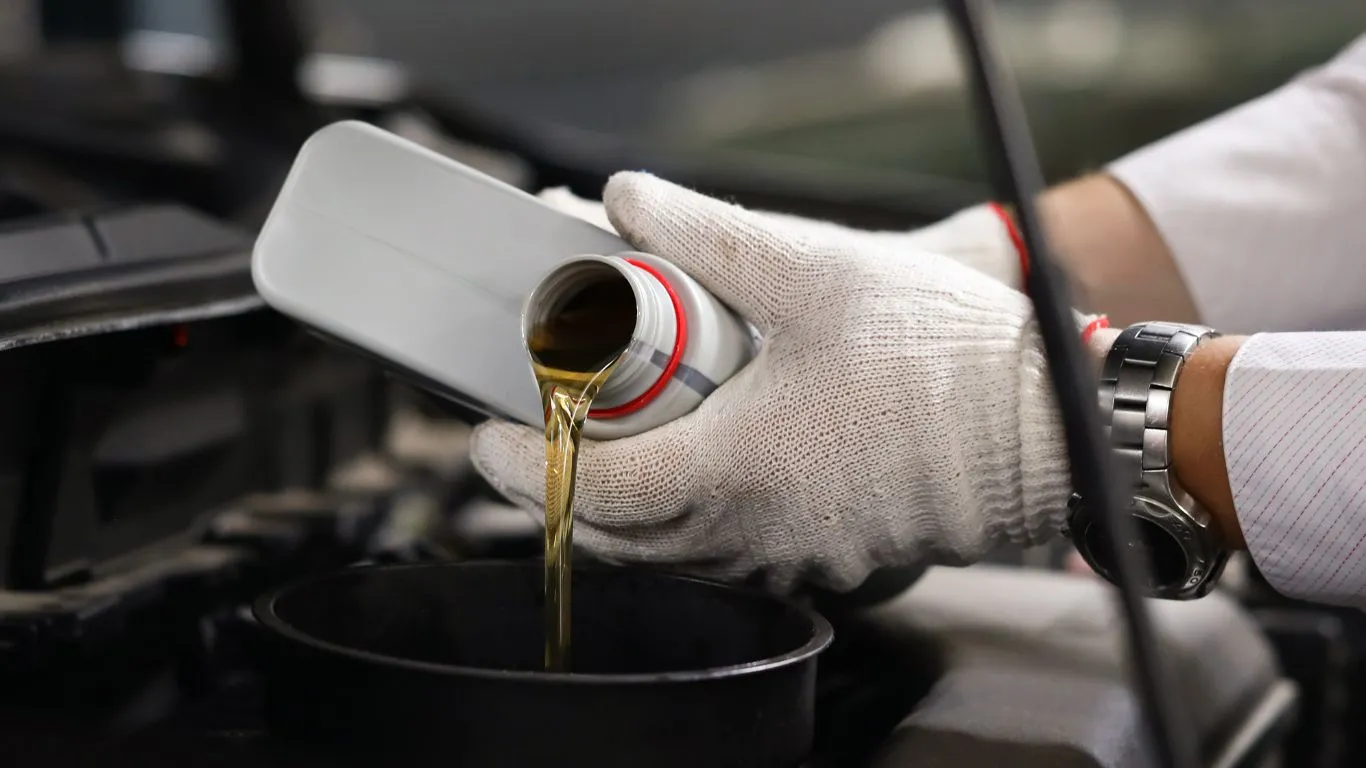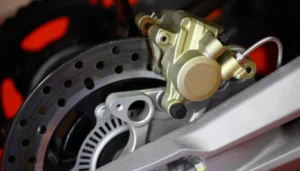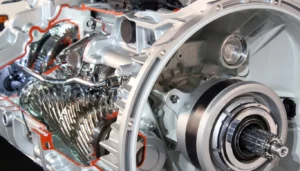If you own a vehicle, then an essential aspect of its care and maintenance that you cannot overlook is regular oil change. This might seem like a trivial task, yet it holds significant influence on your vehicle’s health and longevity. When you ensure regular and timely oil changes, you’re essentially treasuring your vehicle, enabling it to run smoothly, and enhancing its performance.
Many people often wonder why this regular task holds such importance. The answer is simple: your engine’s overall health and efficiency are directly linked to the oil changes that you diligently perform. As you read further, you’ll be equipped with everything you need to know about the vital role regular oil changes play in keeping your vehicle robust, and why you should never ignore it.
The Lifeline of Your Engine: Why Regular Oil Changes are Essential
Your vehicle’s engine is a complex piece of machinery and needs regular maintenance to maintain optimal performance. An essential part of that process is regular oil changes. This task, while seemingly simple, plays a critical role in the overall functionality of your car. By not changing your oil regularly, you’re short-changing not only the performance but also the life of your vehicle. So, why is this task so important? Let’s delve into the matter further.
Ensuring Optimal Lubrication
Think of engine oil as the lifeblood of your car. It keeps the many parts within your engine working smoothly together, minimizing friction and preventing damage. Regular oil changes maintain the quality of this lubricant, ensuring that your engine doesn’t have to work harder than necessary. This ultimately leads to more efficient operation and reduced wear and tear on your vehicle.
Maintaining Engine Cleanliness
As your vehicle’s oil circulates, it collects dirt and other debris from the engine. Over time, this can cause buildup and deterioration of the oil’s quality, leading to potential engine damage. Regular oil changes remove this undesirable material, keeping your engine clean, running effectively and extending its lifespan.
Improving Gas Mileage and Emissions
Did you know that keeping fresh oil in your engine may improve your fuel efficiency? A well-lubricated engine reduces friction and the energy required to operate at peak performance, saving you money at the gas pump. Additionally, clean oil results in less engine byproduct, directly contributing to lower emissions—making it not only economically beneficial but also environmentally friendly.
Increasing Vehicle Longevity
Aging oil can potentially lead to an increase in engine temperatures due to increased friction and reduced cooling capabilities. Over the long term, this can result in severe damage to the vehicle’s intricate machinery. Hence, regular oil changes are one of the key components of preventative maintenance that contribute to prolonging the life of your vehicle.
As you can see, regular oil changes are crucial for your vehicle’s engine maintenance. By understanding the importance and benefits, you can ensure your vehicle’s reliability, longevity, and optimal performance. So, keep an eye on your mileage and make sure not to skip this essential vehicle maintenance task.
Protecting Your Engine: The Importance of Regular Oil Changes
Let’s talk about your vehicle’s lifeblood. Yes, we’re discussing motor oil, the silent hero maximizing your engine’s efficiency and longevity. Regular oil changes may not be the most exciting part of car ownership, but they’re amongst the most crucial. Here’s why:
The Backbone of Lubrication
Motor oil runs through your engine like water in a river, keeping its parts lubricated to reduce friction and prevent overheating. Without regular oil changes, though, the amount and quality of your lubricant can diminish, causing increased engine wear and tear.
Keeping Your Engine Spick and Span
Maintaining your engine clean is another critical reason behind periodic oil changes. As oil circulates, it picks up dirt, debris, and tiny metal particles, which can lead to engine damage if not cleaned regularly. Fresh oil effectively purifies your engine, helping to maintain its health and performance.
Enhancing Fuel Economy and Reducing Emissions
An engine running on clean oil is more likely not only to operate more smoothly but also to consume less fuel. Moreover, regular oil changes can reduce harmful emissions, making your vehicle more environmentally friendly.
Promoting Your Vehicle’s Longevity
Without a doubt, clean, fresh oil contributes to your vehicle’s longevity. Regular oil changes are the most effective maintenance task you can perform to extend the life of your car, thereby protecting your automotive investment.
The Key to Engine Longevity: Regular Oil Changes
Have you ever considered the beating that your vehicle’s engine takes day in and day out? The importance of regular oil changes for the health and longevity of your vehicle’s engine cannot be overstated. While it might seem like a mundane task, routine oil changes are a critical part of preventative maintenance; they keep your engine running smoothly, prolong its life, and can save you a lot of money in the long run.
Mitigating Wear and Tear
Every time you turn on your car’s ignition, the engine springs to life, but it brings along with it metal-on-metal contact, causing wear and tear. Routine oil changes ensure that the engine’s components remain well-lubricated, reducing friction, damage, and the inevitable wear and tear of your engine’s components over time.
Optimizing Engine Performance
Fresh oil facilitates a clean and efficient combustion process. When engine oil is dirty or old, it can lead to a build-up of sludge, deterring the performance of your engine. By getting regular oil changes, you ensure optimal engine performance by maintaining a clean, sludge-free engine.
Boosting Fuel Efficiency
Poor lubrication from old or degraded engine oil can increase fuel consumption. Fresh oil, on the other hand, reduces friction and optimizes engine performance, thus enhancing your vehicle’s fuel efficiency. Regular oil changes are an effective way to increase your MPG (miles-per-gallon) and decrease your visits to the gas station.
Extend the Life Span of Your Engine
Engines are expensive to repair and even more expensive to replace. Regular oil changes can help keep your engine in the best shape possible, allowing it to last longer and perform at its optimal level. It’s a small and cost-effective habit that can make a big impact over time in the lifespan of your engine and in the overall performance of your vehicle.
Maximizing Performance: The Significance of Regular Oil Changes
We all understand the importance of regular maintenance for preserving the health of our vehicles, with oil changes playing a crucial part of this regimen. Oil acts as the lifeblood of your engine, and regular replacements help ensure smooth and efficient functioning over time. Let’s delve in and discover the paramount importance of regular oil changes.
Reducing Engine Wear
With the constant grinding and moving parts in the car’s engine, fresh oil is necessary to stave off excessive wear and tear. Regularly replacing engine oil provides a protective shield to these components, minimizing any potential damage.
Maintaining Peak Performance
A well-oiled engine runs smoother, delivering its peak performance consistently. Regularly changing oil ensures optimal lubrication that reduces friction among engine parts. This not only improves performance but also provides a smoother, quieter ride.
Enhancing Fuel Efficiency
Friction within the engine can reduce fuel efficiency, leading to more frequent trips to the gas station. Regular oil changes decrease this internal friction, resulting in better fuel economy and saving you money in the long run.
Prolonging Engine Life
Finally, regular oil changes can greatly increase the lifespan of your vehicle’s engine. It is a small investment with significant returns—a longer-lasting, more efficient vehicle that will serve you well for many years to come.
Preventing Costly Repairs: Why Regular Oil Changes Matter
The crux of vehicle maintenance revolves around regular oil changes. Missing out on these essential tasks can lead to detrimental consequences. Not only does it hamper your vehicle’s optimal performance, but it also paves the way for expensive future repairs. Now, one might ask, why is regular oil change given so much importance? The answer lies beneath the hood of your beloved vehicle.
Detecting Potential Problems Early On
An oil change is more than just replacing old oil with new. It’s a preventive step that allows your mechanic to get under your car and discover potential issues before they become bigger, costlier problems. Issues like leaks or wear and tear which, if monitored regularly, can be addressed effectively without digging deep into your wallet.
Preserving Engine Parts
Consider your engine as the heart of your vehicle, with oil circulating as indispensable blood. Regular oil changes ensure that this life-giving fluid is clean and thick enough to lubricate the engine’s moving parts properly. Clean oil minimizes the friction between components, preventing overheating and severe damage.
Preventing Accumulation of Damaging Sludge
Over time, old oil breaks down due to exposure to heat and amasses grime, forming a thick substance known as sludge. Sludge is detrimental to your engine’s health and performance. Regular oil changes are paramount to prevent sludge accumulation and preserve optimal engine performance.
Enhancing Fuel Efficiency
Engine condition has a significant impact on fuel consumption. An engine running on dirty oil has to work harder, leading to more fuel consumption. Regular oil changes ensure your engine runs smoothly and efficiently, ultimately helping to enhance fuel economy.
Retaining Vehicle’s Resale Value
Regularly serviced vehicles have higher resale values than those neglected. If you regularly change your oil and keep a record of it, you’ll have a strong selling point when you plan to upgrade or sell your vehicle.
Maintaining Optimal Efficiency: The Role of Regular Oil Changes
Regular oil changes play a crucial role in ensuring that your vehicle functions at its best over time. Not only does this vital maintenance task help to maintain your engine’s efficiency, but it also protects its integral components, enhances fuel economy, and extends engine life. Let’s delve into these benefits more deeply.
Maintaining Essential Lubrication
To function efficiently, your engine’s components need to be properly lubricated. Regular oil changes ensure that this vital lubrication is maintained, reducing friction and preventing overheating.
Keeping the Engine in Pristine Condition
Oil changes help to keep your engine clean by reducing the build-up of dirt and sludge. This build-up can cause significant wear and tear, potentially leading to costly repairs.
Optimising Fuel Efficiency
Inadequate engine lubrication can lead to an increase in fuel consumption. Regular oil changes ensure your engine runs more smoothly, ultimately enhancing fuel efficiency and reducing emissions.
Boosting Vehicle Life Span
By minimizing engine wear and tear and improving efficiency, regular oil changes ultimately extend the life of your vehicle. This translates to cost savings in the long term and a higher resale value.
Preventing Potential Issues
Regular oil changes provide an opportunity to identify and rectify potential issues before they become major problems. This proactive approach can save you from inconvenient breakdowns and expensive fixes down the line.
Retaining Resale Value
Frequent, recorded oil changes indicate a well-maintained vehicle, thus contributing significantly to its resale value. Prospective buyers are often more willing to pay more for a car that they know has been properly looked after.
Preserving Your Investment: The Value of Regular Oil Changes
When it comes to maintaining the health of your vehicle, regular oil changes stand paramount. Not only does this practice contribute to the enhanced performance of your engine, but it also majorly impacts the longevity and resale value of your vehicle. Let’s delve into why routine oil changes are an integral part of vehicle maintenance that should never be underestimated.
Safeguarding Your Investment
Every vehicle is an investment and like all investments, it requires diligent care to ensure returns. By simply changing the oil regularly, you can prevent costly repairs and replacements down the line, catapulting your vehicle’s overall lifespan. Not to mention, a well-maintained car with a consistent oil change record commands a higher resale value in the market.
Enhancing Performance and Efficiency
Oil is the lifeblood of your car’s engine. It keeps the many components of the engine working efficiently by reducing friction and heat. Over time, this oil breaks down and becomes less effective at lubricating. Regular oil changes ensure your engine always has fresh oil, thereby enhancing the vehicle’s performance and efficiency. An efficient engine also results in better gas mileage, saving you money at the gas pump.
Fending Off Engine Damages
Dirt and debris are the enemies of an engine, leading to wear and tear. When you regularly change your oil, you’re effectively removing these harmful particles, keeping the engine clean, and preventing the accumulation of damaging sludge. This practice wards off potential engine complications while improving its overall life span.
Keeping the Resale Value Intact
Last but not least, properly maintaining your vehicle including regular oil changes protects its resale value. Prospective buyers often ask for maintenance records, looking for proof of regular oil changes among other things. Consistently changing your oil not only proves that the vehicle has been properly maintained, but it also provides peace of mind to the new buyer. Ultimately this helps retain, if not increase, the resale value of your vehicle.
Avoiding Engine Breakdowns: Why Regular Oil Changes are Crucial
Ignoring regular oil changes can have perilous consequences for your vehicle. Not only does it risk your engine’s health, but it also hampers the overall performance and efficiency of your car. Let’s delve into the reasons behind the vital role of regular oil changes in preventing engine breakdowns.
Minimizing Risk of Engine Overheating
Oil serves as a coolant, preventing your engine from overheating. As it ages, its heat-absorbing properties diminish. Regular oil changes ensure your engine operates within the right temperature range, thereby minimizing the risk of overheating.
Preserving Oil Viscosity
The viscosity, or thickness, of your engine’s oil is crucial in ensuring smooth and efficient operation of your vehicle. Over time, oil loses its viscosity due to heat and contamination, which could lead to undue wear and tear. Regular oil changes help preserve the right viscosity, thereby aiding in the seamless functioning of your vehicle.
Preventing Severe Engine Damage
Sludge, a harmful byproduct formed when oil breaks down, can cause severe damage to your engine. Regular oil changes flush out this damaging sludge, protecting your engine and averting potential breakdowns.
Nurturing Optimal Engine Functionality
A well-lubricated engine ensures optimal functionality, reducing the stress on your vehicle’s components. By keeping up with regular oil changes, you’re fostering a healthier and more efficient engine.
Averting Costly Repairs Down the Line
While oil changes may seem like a recurring expense, they are significantly cheaper than dealing with a major engine repair or, worse yet, a complete engine replacement. Regular oil changes can help identify and rectify minor issues before they escalate, saving you from hefty repair bills in the long run.
Ensuring Smooth Operation: The Benefits of Regular Oil Changes
Keeping your car’s engine in optimal shape is much like keeping your body in excellent health. You don’t wait until you’re sick to start considering nutrition and regular exercise, do you? Similarly, your vehicle’s engine needs routine care and maintenance to ensure its smooth operation and longevity. A key aspect of this routine care is regular oil changes.
The Lifeline of Your Engine
Just as your body depends on water to function effectively, your vehicle relies on oil for optimal operation. If oil isn’t changed regularly, then engine parts work harder and can eventually fail. Ensuring regular oil changes means your vehicle’s engine gets the lubrication it requires, reducing wear and tear.
Boosting Your Engine’s Efficiency
A vehicle with clean oil runs smoother and gets better gas mileage, enhancing overall fuel efficiency. Regular oil changes save you at the pump by improving your vehicle’s fuel consumption rate.
Investing in Your Vehicle’s Future
Along with regular maintenance, timely oil changes also influence your vehicle’s resale value. Properly maintained vehicles command higher sale prices. In essence, regular oil changes are an investment in the future of your vehicle.
Protecting your Vehicle from Damage
Regular oil changes don’t just protect the engine, but they also prevent the buildup of damaging sludge. This ensures peak performance and prevents potential costly repairs down the line.
Promoting Your Engine’s Longevity
A well-oiled engine lasts longer. Thus, frequent oil changes extend the life of both your vehicle’s engine and your vehicle itself. So, this simple maintenance task promotes longevity, which can save you from the cost of untimely engine replacements.
Boosting Fuel Economy: How Regular Oil Changes Can Save You Money
Regular oil changes are often overlooked as a key part of vehicle maintenance. It’s not just about maintaining your engine; it could also save you money by improving your car’s fuel economy. When oil becomes dirty, it loses its ability to lubricate the engine effectively – causing your engine to work harder and, in turn, lower its fuel efficiency.
The Correlation Between Oil Changes and Fuel Economy
When engine oil degrades, it no longer provides optimal lubrication. This causes the engine parts to create more friction, which requires more fuel to operate. Regular oil changes ensure that your engine always has high-quality oil, reducing friction and fuel consumption.
How exactly do oil changes improve fuel efficiency?
- Fresh oil reduces friction: Clean engine oil effectively lubricates engine components, which reduces friction, and less friction equals better fuel economy.
- Dirty oil makes engines work harder: When oil collects dirt, it becomes thick and sludgy which can make your engine work overtime. This could negatively impact your vehicle’s fuel efficiency.
- Enhanced engine performance: Regular oil changes not only keep the engine clean, but also maintain optimal engine performance. When your engine performs efficiently, it uses less fuel.
Does paying for oil changes save money in the long run?
Regular oil changes do cost money, but compared to the cost of getting your engine fixed due to problems caused by dirty oil, it’s definitely a smart investment. Enhanced fuel efficiency also means you’ll be making fewer trips to the gas station, saving even more money in the long run.
Switching to High-Quality Synthetic Oil
Consider upgrading to high quality synthetic oil during your next oil change. It may cost more upfront, but synthetic oil pays for itself by maintaining a consistent viscosity in all weather conditions, preventing deposits, and improving overall engine performance and therefore, fuel economy.
Enhancing Engine Health: The Importance of Regular Oil Changes
Understanding the necessity of regular oil changes for your engine is a fundamental part of vehicle maintenance. Your car’s engine relies on oil for multiple reasons, from lubrication and cooling to cleanliness and efficiency. Leaving oil unchanged can jeopardize these functions, potentially resulting in costly engine damage and reduced performance. Now, let’s delve into why changing your car’s oil regularly is so crucial.
Preserving Engine Efficiency
Your engine efficiency is heavily reliant on the quality of your oil. Over time, as the oil becomes contaminated with dust, dirt, and debris from the engine and the environment, it slowly turns into sludge. This sludge can reduce the efficiency of your engine and hinder its performance. Regular oil changes ensure that only clean, quality oil is present in your engine, thus maximizing its efficiency.
Preventing Engine Overheating
Oil also acts as a coolant in your car’s engine. It prevents overheating by reducing friction and heat generated from moving parts. As oil ages, it loses its cooling properties, putting your engine at risk for overheating. Routine oil changes can prevent this problem, keeping your engine functioning at a safe temperature.
Protecting Engine Components
Old, contaminated oil can become corrosive, causing wear and tear on your engine’s components over time. Routine oil changes can help you avoid these damages, keeping your engine’s key components safe and ensuring a longer lifespan for your engine.
Maintaining Resale Value
Believe it or not, regular oil changes may even have a positive impact on your car’s resale value. When potential buyers or appraisers see a well-maintained oil-change history, it signals that the car has been well cared for, likely resulting in higher resale values.
Saving on Future Costs
Finally, regular oil changes can be thought of as an investment in your vehicle’s future. They can save you money in the long run by preventing future costly repairs caused by continuous engine wear or damage from old, dirty oil.
Prolonging Engine Life: The Significance of Regular Oil Changes
Just like the blood in our veins, oil is the lifeblood of your vehicle’s engine; it provides the necessary lubrication, heat reduction and cleanliness that an engine requires to function efficiently. Regular oil changes thus play a substantial role in extending the life of your vehicle’s engine. They not only improve engine health and performance but can also preserve the resale value of your vehicle and save you from considerable future costs.
Maintaining the Health of Your Engine
Regular oil changes are critical for maintaining the health of your engine. Fresh oil promotes smooth engine operation by providing essential lubrication, which reduces friction and the consequent overheating in the engine’s moving parts.
Improving Your Vehicle’s Performance
A clean engine runs more efficiently, improving your vehicle’s overall performance. By regularly changing the oil, you’re removing dirt, debris, and other impurities that can cause damage and adversely impact your engine’s functionality.
Safeguarding Your Investment
Your car is an investment – one that requires care and attention. By ensuring regular oil changes, you’re playing a part in preserving its engine components, subsequently retaining its value and longevity.
Avoiding Unforeseen Repair Costs
Regular oil changes have the potential to extend your engine’s lifespan by mitigating wear and tear. That means fewer visits to the repair shop and savings on potential future costs, which tend to be significant when it comes to engine repairs.
Preserving Your Vehicle’s Resale Value
Believe it or not, regular oil changes can bolster your vehicle’s resale value. A well-maintained engine is a significant selling point, and any prospective buyer would willingly pay more for a vehicle that promises solid internal health.
Reducing Wear and Tear: Why Regular Oil Changes are Essential
When it comes to vehicle maintenance, regular oil changes are often overlooked or delayed. However, doing so can lead to detrimental wear and tear on your vehicle’s engine. The engine, the heart and virtual power unit of the vehicle, requires clean, fresh oil to function optimally and ensure minimal friction. Consistent oil changes not only facilitate smooth operation but also significantly extend the lifetime of your vehicle.
The Indispensable Role of Oil
Oil plays a crucial part in reducing friction between moving parts of your engine, thereby preventing wear and tear. Without new and quality oil, these components will grind together, causing degradation over time.
Perils of Delayed Oil Change
Extended intervals between oil changes can allow harmful particles to accumulate in the oil. These contaminants can cause corrosion and significantly reduce the efficiency and lifespan of the engine.
Benefits of Regular Oil Change
Regular oil changes not only minimize wear and tear but also optimize the performance of your vehicle. It ensures an efficient, well-lubricated engine that consumes less fuel. Additionally, it helps in maintaining the resale value of your vehicle.
Choosing the Right Engine Oil
It’s important to select the right oil for your vehicle. High quality and appropriate oil can drastically improve the efficiency of your vehicle while ensuring its longevity. Always consult your vehicle’s manual or seek a professional’s advice while deciding on oil types.
Conclusion
In conclusion, regular oil changes play a vital part in keeping your vehicle efficient and reliable over time. By ensuring optimal lubrication and cleanliness, enhancing fuel efficiency, and extending the life span of your engine, you protect your vehicle from costly damages and help preserve its resale value. It’s a simple yet powerful maintenance task that pays off greatly in the long run.
Consider it as a small but significant investment in your vehicle. Give your car the care it deserves, and it will reciprocate with tremendous performance and longevity. Remember, each oil change brings you a step closer to a robust and efficient engine!






